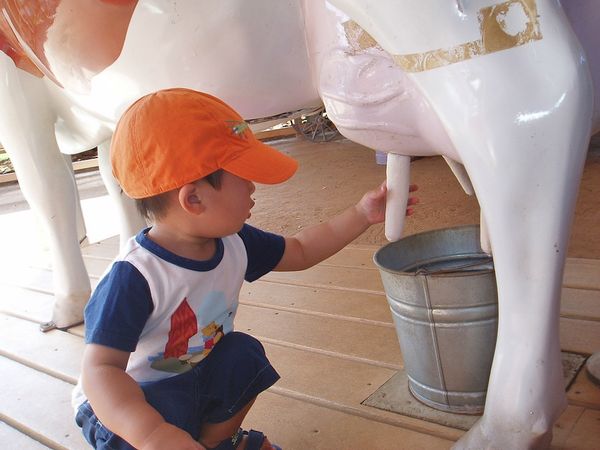I'm a bad listener.
I'm not saying that to self-deprecate, look humble or fish for compliments. It's a fact. Listening is really hard, and I'm not good at it. I would even go so far as to say that most people aren't good at listening. That may sound strange to you, but if we dissect the elements of good listening, I think you'll agree.
After all, the simple act of remaining quiet long enough for someone else to speak isn't listening. Nor is it about getting a point or idea out of the words they say. That sounds like listening—and it's what we do in daily conversations—but true listening is much more complex. What I practice, and what I think most people practice, is a form of "cheap" listening: getting the most information with the least amount of mental energy.
We listen to get a "take away," something that makes sense from our perspective and is useful to inform our actions and behavior. Usually, this kind of listening relies on assumption. While "cheap" listening is generally useful when we need to quickly summarize and make decisions off of information, it can be very toxic in relationships. Many arguments contain a section where one person protests "that's not what I meant," and the other retorts "well that's what you said!" Yet this latter statement would be more accurate as "that's not what I heard."
So, how do I propose to "fix" these miscommunication problems caused by bad listening? Well, I don't think we can fix them. I think we can improve our listening skills through awareness and practice. Like diet or exercise, it doesn't take much change to see improvements.
If you start substituting different, more effective listening strategies into your daily conversations, you'll build your awareness and develop better habits. Here are some listening habits that I (try to) practice, and some suggestions of how to use them.
1. Reframing and Repeating.
The purpose of this technique is to make sure that what you heard someone say was what they meant to communicate. It is especially useful when you are communicating about a tense or difficult topic, since it can prevent some of the frustration or irritation caused by faulty interpretation. Take this fictional conversation for example:
Joe: I feel like you always assume that I'm upset with you, but sometimes I'm just frustrated at other things and it comes out like I'm mad.
Jill: I hear you saying that you want me to give you more space when you seem upset, is that correct?
Joe: Kind of... I want you to accept it when I say I'm not mad at you.
In this scenario, reframing and repeating the statement helped clarify what Joe meant. Most reframing statements start with something like "I hear you saying..." or "it sounds to me like..." which can help prevent an aggressive or critical tone.
2. Validating before (or instead of) reacting.
This is the hardest aspect of listening for me to practice. Usually, when I hear something that I disagree with, I become afraid that validating is the same as agreeing. However, the practice of validation is not about acknowledging truth, but rather respecting and reinforcing the individual's right to think freely.
When we jump to disagreeing with someone's statements, we move out of listening into teaching, preaching or asserting. While good things in the appropriate setting, these acts make it difficult to understand someone, or have them feel understood—and someone who feels misunderstood is much more likely to be defensive, detached, and stubborn. Here's an example of neutral validation:
Jill: I know you don't like my boyfriend, but I think he's really cute and he makes me laugh so I don't care that he's mean sometimes.
Joe: It seems like for you, humor and attractiveness are more important qualities.
Jill: That's true. I guess I can just ignore the rest!
This may have been frustrating to read if you disagree with Jill's opinion. But by validating instead of immediately disagreeing or expressing frustration, Joe kept the conversation going and prevented Jill from becoming defensive. He also managed to avoid the assumption she made when saying "I know you don't like." This kept the conversation focused and neutral.
3. Don't Jump Ahead.
Have you ever been in a conversation and reached a point where you "knew" where the conversation was headed? Usually, this is the moment you mentally stop listening and starting developing responses, remembering old arguments, or defending your own position. Sometimes, this feels like a positive moment: you know what to ask next to "fish" for the topic you really want the person to talk about. Unfortunately, this is like jumping off a cliff into shark-infested waters.
Listening is similar to reading word problems: if you start skimming, you miss some important detail and end up responding incorrectly. Usually, this impatience kills the natural flow of the conversation, and you never really learn what the other person was thinking. Listening is all about delayed gratification: you must sacrifice your own goals for the sake of gaining true understanding.
The easiest way to keep yourself from jumping ahead while listening is to keep your mind engaged on what is being said in the moment. Practicing the previous two techniques takes mental energy, and will help your mind stay present; it also helps to focus on observing everything the listener is doing. Notice the expressions on their face, the places they look while speaking, and their body posture. In your mind, think about the words they are saying and how the words feel to you. From my experience, the more effort I put into listening, the harder it is for my mind to wander.
I hope that these three techniques help you to see that listening can be way more than the passive side of a conversation. With this sort of intentional, dedicated effort, you can learn so much more about the people that often confuse you. From my experience, active listening like this tends to encourage others to respond in turn, and really elevates your communication. Listening is a contagious disease: when you listen well and respectfully, you might find others more willing to listen to you.
If you would like to learn more about better listening skills, I would recommend "The Lost Art of Listening" by Michael P. Nichols. This book really helped open my eyes to my bad listening habits, and many of the thoughts from this article were inspired by it.



















